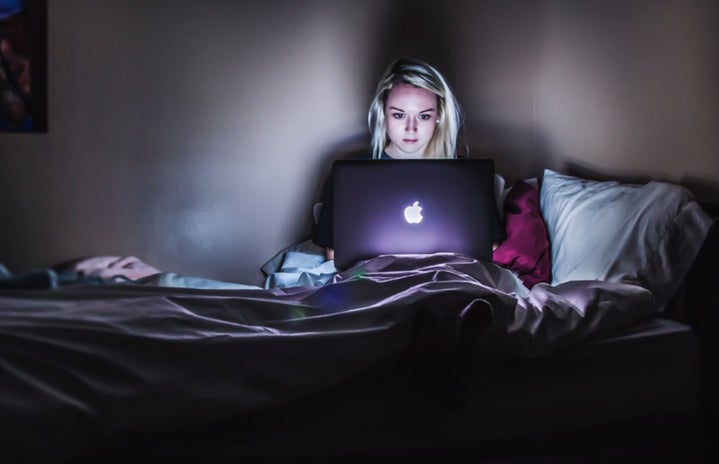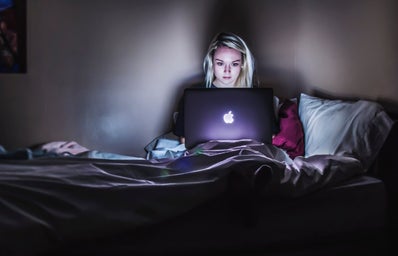The questions we usually try to avoid from our parents like, “What did you do on your Saturday night?” or “So, are you two dating?” tend to hit us around this time of year. With that being said, I was met with a new and startling question last week while on the phone with my mom. In relativity to this article’s topic, I was in the middle of a meal, phone balanced between my ear and shoulder, frantically crossing-off and creating tasks in my planner, all while half listening to my mom’s pleading question, “Tell me one time during your day when you have time to yourself.” No answer from my side. “Hello?” she demanded. I replied, “Uhhh, like, usually after classes and practice and after my meetings, I have like 5 minutes in between showering and the library, but honestly, I don’t know…” I heard my voice trail off as I realized I was so busy trying to be involved in everything, wishing I had eight hands instead of two, and bending over backwards to meet all of my deadlines.
I realized I wasn’t leaving time for the only person who could control whether or not I was awake and on-time to class, staying on top of my deadlines, and keeping myself healthy: myself.
It’s no secret that college can be academically tough, but many times we tend to push aside our mental health while we allow ourselves to magnify our stressors. Now, if you put yourself in an environment like Babson, thriving and entrepreneurially-minded students attempt to participate equally in all academic and extracurricular activities. There is such a thing as being “over-committed,” and the pressure to be involved in everything creates the perfect storm for stressful semesters. According to Sage Publication Journals, the percentage of college students who feel some amount of psychological distress, depression, and anxiety has increased dramatically over the last decade. Along with this same study, 30% of students cited stress as a negative factor influencing academics, while another 21% cited trouble sleeping as a part of their negative academic performance (See footnote 1).
Quick check: When is the last time you put down your phone, shut your laptop, and allowed yourself to jump into bed and practice self-care, receiving a full eight hours (or more, gasp!!) of sleep? How many times per day do you overhear students complaining and groaning over lack of sleep, all while pushing themselves further and further to meet the unattainable standards set by our greatest enemy, ourselves? Having goals is a great method to success, and being involved as an active member of the Babson community gives us overachievers a sense of fulfillment. On the other hand, at what point are we neglecting ourselves rather than nourishing the only person in control of meeting all of these expectations?
All that being said and considered, here are 5 methods I’ve adopted to consciously take time out of my day and put myself first:
1. Journaling
Journaling tends to have a certain stigma around it, seeing as most people assume that if you’re journaling, you’re probably writing a love letter to your crush. Wrong! I take five minutes at the beginning of the day to journal about something that was on my mind before going to bed, as well as one thing I know I need to get done during my day. It helps me get my backed-up thoughts down on paper, as well as distress and hold myself accountable.
2. Mindfulness Exercises
Sounds crazy, but it isn’t. One click away on YouTube, mindfulness exercises help to channel and align your inner chakras; therefore, allowing for a sense of peace and stillness. I’ve done this directly after waking up and right before bed, and my preference is right before bed. It slows me down after a long, taxing day.
3. Coloring
As someone who enjoys art and drawing, coloring before bed or even during my lunch break at work allows me to focus on something besides the quantitative world of my Babson courses. Coloring mandalas is especially therapeutic, as the small gaps in the design scheme require more focus and attention as compared to other coloring designs, forcing me to hone in on one area and stay within the lines of the paper. This helps me tune out hectic activity and noises around me, making me more aware of my sense of self.
4. Taking deliberate walks between activities or after meetings
Between classes or on my way from one activity to another, I try and make a conscious effort to slow my walking pace or take a longer route. In doing so, I find I become more aware of my surroundings, and I am able to see more of campus or be outside for longer periods of time. Slowing my pace usually helps to slow my heart rate and my schedule, in general, is based on me making it from Point A to Point B. With that being said, taking deliberately longer walks from Trim to Reys, Malloy to Tomasso, or my dorm to any class, allows time for built-in reflection and de-stressing.
5. Healthy Eating Habits
As someone who considers self-love a huge part of self-care, one way I take care of myself is by being kind to my body in terms of what I put into it. I’ve come up with several “Trim Hacks” that help me get creative with my meals, as well as allowing myself a splurge every once in a while. Being mindful of what I put into my body in terms of nourishment helps me to become more mindful of myself and the presence I have when I am well-fed and full after a meal. Maybe salads aren’t for you, and maybe the thought of an aesthetically-pleasing acai bowl makes you want to gag. If that’s the case, accommodate this tip to your own needs! Maybe you rearrange your food (whatever you choose to eat) into something that looks pleasing to eat, or maybe you indulge in a new dessert at the dining hall. Whatever you choose, food is what gives us our energy, so take what you need when it comes to filling up physically, mentally, and emotionally.
One last note: Don’t be so hard on yourself! How many times per day do you catch yourself subconsciously insulting yourself or hating on a habit you have developed. Give yourself a break, and realize that the more you insult or critique yourself, the less happy you can become. Standards are important and self-image is what you make it. It sounds corny and like something your mom would say sending you off to your first day of high school, but self-love is the only way we keep ourselves motivated and looking at life with the glass half-full.
Footnotes
-
An examination of college student wellness: A research and liberal arts perspective by Debora R Baldwin, Kerry Towler, Michael D Oliver, II, and Subimal Datta

